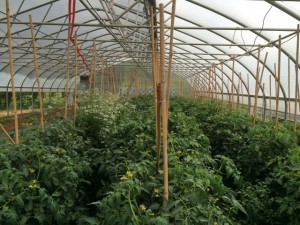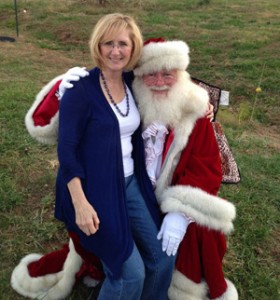The Challenge
“In the end we will conserve only what we love. We will love only what we understand. We will understand only what we are taught.” (Baba Dioum)
“More food needs to be produced in the next 50 years than has been produced worldwide during the last 10,000 years combined.” (The Gardian, 2007)
Solutions
Diversity is the Key to Sustainable Farming!
“Aquaculture, not the Internet, represents the
most promising investment of the 21st Century.”
Quoted Nobel Laureate and economist, Peter Drucker
Click buttons below to learn more. The links will take you to more specific
information in a new tab on our farm website at Caledonia Farms.
-
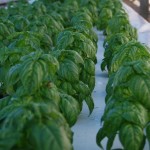 Simply put, it is the combining of two sciences Aqua-culture (the growing of fish or shell fish in a controlled environment) and Hydro-ponics (growing plants in water). Click to learn more.
Simply put, it is the combining of two sciences Aqua-culture (the growing of fish or shell fish in a controlled environment) and Hydro-ponics (growing plants in water). Click to learn more. -
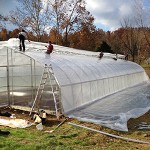 The first HT is 35×60, and is an “in ground” more traditional style of planting. We currently have it planted mostly in tomatoes, but also some peppers, rare beans for the seed bank and cabbage and peanuts. Click to learn more.
The first HT is 35×60, and is an “in ground” more traditional style of planting. We currently have it planted mostly in tomatoes, but also some peppers, rare beans for the seed bank and cabbage and peanuts. Click to learn more. -
Learn how to raise bees in general, build your own boxes or supers, grow Queens, split hives, catch swarms, collect and spin out honey, mite and disease control are examples of topics covered in the training classes. Click to learn more.
-
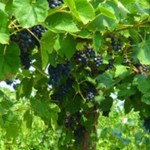 Training in grape vine varieties and methods of trellising and training, pruning, basic disease and insect control. Click to learn more.
Training in grape vine varieties and methods of trellising and training, pruning, basic disease and insect control. Click to learn more. -
 This fly isn’t the nasty house fly and it makes great fish and chicken feed live or dried, and is self harvesting! Click to learn more.
This fly isn’t the nasty house fly and it makes great fish and chicken feed live or dried, and is self harvesting! Click to learn more. -
Vermiculture is worm composting. Worms are a farmers best friend. Click to learn more.
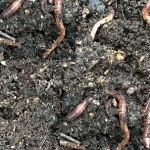
-
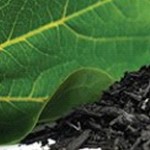 Biochar is basically charcoal that we make here and has been inoculated with bacteria and fungus to help enrich the soil. Click to learn more.
Biochar is basically charcoal that we make here and has been inoculated with bacteria and fungus to help enrich the soil. Click to learn more.
Future Training
Sustainable Farming Courses
In the future you may take one week, two weeks, or three weeks of classes. Currently we are offering a long weekend Aquaponics class on April 14-17, 2016. Click to learn more.
We Need YOU in our Colony!
About Us
Nonprofit 501(c)3
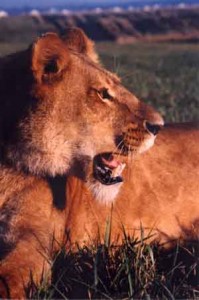 PNI History
PNI History
PNI began with the goal of Conservation Education and provided sanctuary to exotic animals. Many school groups, civic groups, and others visited PNI and learned more about conserving endangered animals. Click to learn more.
PNI Today
PNI is still about conservation education but focuses on diverse sustainable farming techniques including aquaponics, high tunnel greenhouse, wine grape vineyard, and bees. Click to learn more.
The Maxwells
Harold Maxwell, called “Max”, is a farmer, president of PNI, and Santa Max (Shhh!). Marge Maxwell, a WKU professor, is the vice-president of PNI. Click to learn more about them and their qualifications.
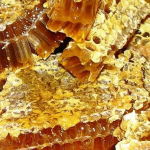
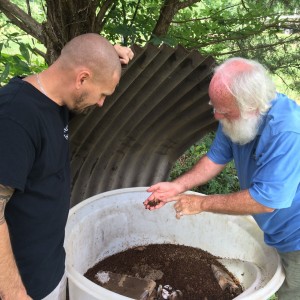
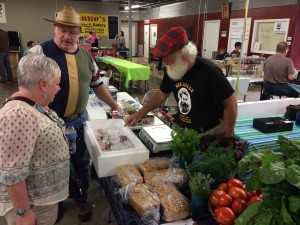
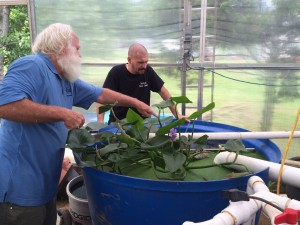
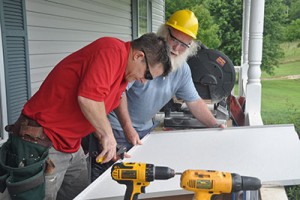 If you are in the area you may be able to volunteer, we would love to have you! We accept individuals assigned to “community work”. This is a working farm so there is ALWAYS something that needs to be done. Some chores require knowledge and skill while others don’t. Just let us know and we will try and match you up with what you like and have experience. Some of the things to be done are: harvesting plants or fish, planting seed, pruning grape vines or picking grapes, cutting grass and weed-eating, painting, setting out seedlings in the hydroponic beds, harvesting honey from hives, building or painting hives, extracting honey, cleaning equipment, landscaping, splitting wood or making bio-char. As one can see there is always something to do!
If you are in the area you may be able to volunteer, we would love to have you! We accept individuals assigned to “community work”. This is a working farm so there is ALWAYS something that needs to be done. Some chores require knowledge and skill while others don’t. Just let us know and we will try and match you up with what you like and have experience. Some of the things to be done are: harvesting plants or fish, planting seed, pruning grape vines or picking grapes, cutting grass and weed-eating, painting, setting out seedlings in the hydroponic beds, harvesting honey from hives, building or painting hives, extracting honey, cleaning equipment, landscaping, splitting wood or making bio-char. As one can see there is always something to do!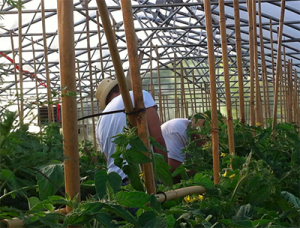 As a nonprofit organization, we can accept furniture, equipment, plants, technology, services, or anything that might be of use on a farm or the house where we will house the veterans course participants.
As a nonprofit organization, we can accept furniture, equipment, plants, technology, services, or anything that might be of use on a farm or the house where we will house the veterans course participants. 